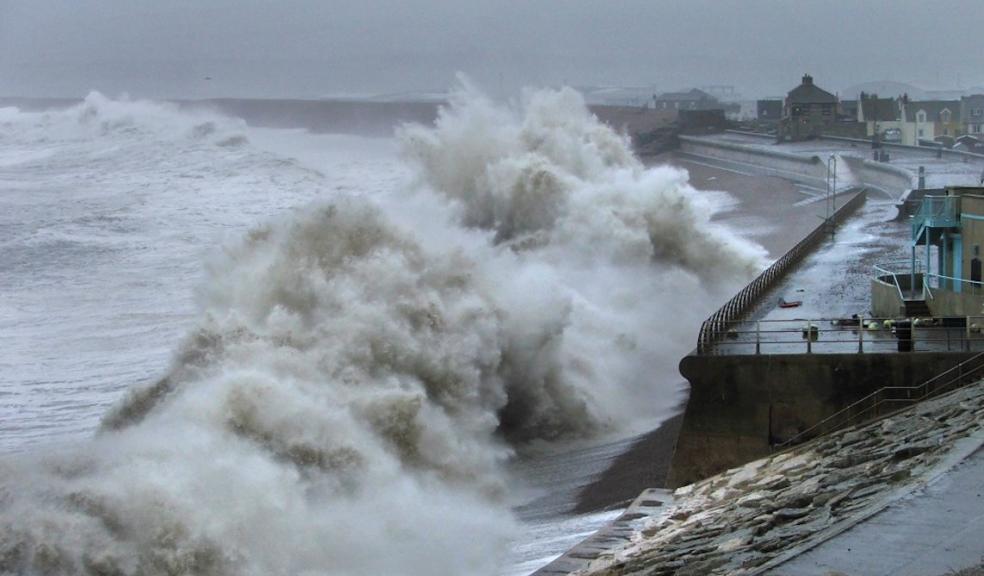
Coastal scientists receive funding to study full impact of winter storms
Coastal scientists at Plymouth University have launched a 12-month project to fully analyse how the recent barrage of devastating winter storms has affected the communities and coastlines of south west England.
From early December 2013 to February 2014, the coasts of Cornwall, Devon and Dorset were battered by an unprecedented run of major winter storms. Infrastructure and coastal defences have been badly damaged, and initial analysis of the wave data has suggested the storms were the most energetic to affect the South West since 1950.
Now with funding from the Natural Environment Research Council (NERC), scientists from Plymouth University’s School of Marine Science and Engineering will work alongside the Plymouth Coastal Observatory and the Met Office to assess the direct impact of the storms on the coast, and on the communities that live there.
The researchers hope the results of this project will help develop adaptation strategies that might be implemented before future storms.
Professor Gerd Masselink, Principal Investigator at the University’s Rapid Coastal Response Unit, said: “The coastal impact of this sequence of extreme Atlantic storms has been very significant. At several locations, prominent coastal landforms – such as bridges, stacks and arches – have disappeared, suggesting that at least some of the coastal changes will be permanent. However, many changes will turn out to be, in fact, reversible – such is the nature of a dynamic coastline.
“The extent of the damage and disruption caused by the storms, however, highlights the vulnerability of the coast of England to such extreme storm events and a pertinent question to be raised in this context is how sustainable some coastal communities are in the long-term. One of our main goals is to evaluate vulnerability to similar events and get people thinking about the future by exploring ideas about coastal adaptation strategies.”
During the project, the scientists from Plymouth will measure how the storms affected beaches, cliffs and sand dunes at more than 25 sites around the South West, including popular summer holiday destinations such as Porthleven, Bude and Westward Ho!
They will also assess changes to the underwater landscape at two sites on the north and south Cornish coasts, and use a wave model developed by the Met Office to test out different wave climate scenarios.
The work will feed into a GoogleEarth-based Atlantic storm coastal impact map to help illustrate the vulnerability of the southwest to Atlantic storms. This map will be useful for coastal councils and general audiences such as A-level geography students.
Professor Duncan Wingham, chief executive of NERC, said: “The storms that hit the South West this past winter were some of the worst on record. And with recent simulations suggesting this coastline may become a region of intensified storm activity in future, it’s fitting that NERC is funding this research.”
The £50,000 project started on 1 March 2014, running for one year, and Professor Masselink will work with Professor Paul Russell, Dr Mark Davidson, Dr Daniel Conley and Dr Stephen Fletcher, also from Plymouth University, the Plymouth Coastal Observatory and the Met Office.













